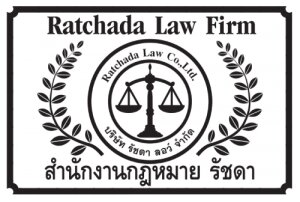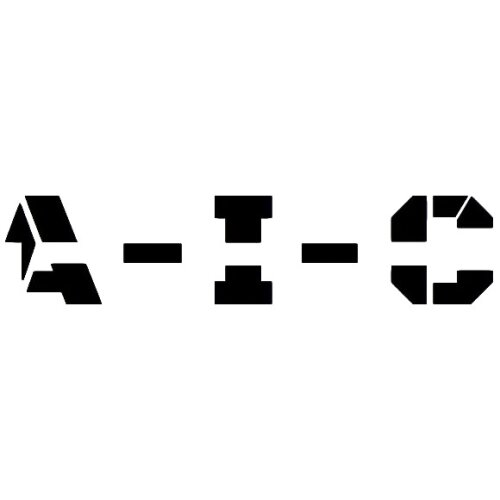Best Bankruptcy Lawyers in Bang Kapi
Share your needs with us, get contacted by law firms.
Free. Takes 2 min.
List of the best lawyers in Bang Kapi, Thailand
Thailand Bankruptcy Legal Articles
Browse our 1 legal article about Bankruptcy in Thailand written by expert lawyers.
- How to File for Bankruptcy in Thailand
- The economic landscape of Thailand has seen its share of ups and downs over the years, with the 1997 Asian financial crisis leaving an indelible mark on the country's financial system. This crisis forced Thailand to reevaluate its financial institutions and legal frameworks. As a response to the corporate defaults... Read more →
About Bankruptcy Law in Bang Kapi, Thailand
Bankruptcy law in Thailand, as it pertains to the Bang Kapi district and beyond, provides a structured legal process for individuals and businesses unable to meet their financial obligations. The aim of the law is to fairly distribute the debtor's assets to creditors and provide a fresh start for the debtor. The proceedings are often complex and may require navigating both the Civil and Commercial Code of Thailand and specific bankruptcy statutes.
Why You May Need a Lawyer
Bankruptcy can be a confusing and stressful process. Here are some common situations where you might need legal assistance:
- Filing for bankruptcy: Navigating the paperwork and legal requirements can be overwhelming without professional help.
- Creditor negotiations: Lawyers can often negotiate better terms with creditors or help settle debts outside of court.
- Asset protection: Ensuring that exempt property is not seized in the bankruptcy process often requires legal expertise.
- Representation: Bankruptcy proceedings involve court appearances, and having a lawyer represent you can significantly impact the outcome.
- Understanding implications: A lawyer can help you understand the long-term effects of bankruptcy on your credit and future financial prospects.
Local Laws Overview
The key aspects of bankruptcy law relevant to Bang Kapi, Thailand include:
- Insolvency Criteria: Debtors must meet certain criteria to be declared insolvent, such as being unable to pay debts as they come due.
- Bankruptcy Court: The Central Bankruptcy Court in Thailand is responsible for handling bankruptcy cases. Cases from Bang Kapi will be filed and heard here.
- Automatic Stay: Filing for bankruptcy initiates an automatic stay that halts most collections and legal actions against the debtor.
- Asset Liquidation: In liquidation bankruptcy, non-exempt assets are sold to pay off creditors.
- Reorganization Bankruptcy: This option allows businesses to continue operations under a court-approved plan to pay off debts.
Frequently Asked Questions
1. What is the difference between liquidation and reorganization bankruptcy?
Liquidation involves selling the debtor's assets to pay off creditors, whereas reorganization allows a business to keep operating while following a plan to repay debts over time.
2. How long does the bankruptcy process take?
The duration varies but typically, personal bankruptcies can take several months to a year, while business bankruptcies can take longer depending on complexity.
3. What happens to my personal property in bankruptcy?
Some personal property is exempt from seizure under Thai law, but non-exempt assets may be sold to pay creditors.
4. Can I keep my house in bankruptcy?
It depends on the value of the house and the exemptions available under Thai law. Consultation with a lawyer can provide more clarity based on your situation.
5. Will bankruptcy ruin my credit?
Bankruptcy will negatively affect your credit, but it also provides a chance to start fresh financially. The impact lessens over time.
6. Can all debts be discharged in bankruptcy?
Not all debts can be discharged; certain obligations like alimony, child support, and some taxes may still need to be paid.
7. What is an automatic stay?
An automatic stay immediately halts most collection activities, legal actions, and foreclosures against the debtor once bankruptcy is filed.
8. Do I need to go to court?
Yes, bankruptcy proceedings typically involve court appearances, and having a lawyer present can be beneficial.
9. How much does a bankruptcy lawyer cost?
Costs vary depending on the complexity of the case and the lawyer's fees. Many lawyers offer initial consultations to discuss fees and options.
10. Can a lawyer help me avoid bankruptcy?
Yes, a lawyer may be able to negotiate settlements or payment plans with creditors to avoid the need for bankruptcy.
Additional Resources
Here are some resources that can be helpful:
- Central Bankruptcy Court of Thailand
- Thai Ministry of Justice
- Legal Aid Services
- Financial Counseling Agencies
- Thai Bar Association
Next Steps
If you need legal assistance with bankruptcy, consider taking the following steps:
- Consult with a bankruptcy lawyer: Many lawyers offer initial consultations to discuss your situation and options.
- Gather financial documents: Prepare your financial documents, including assets, liabilities, income, and expenses, to provide a comprehensive picture to your lawyer.
- Understand your options: Work with your lawyer to explore alternatives to bankruptcy, such as debt consolidation or negotiation.
- Prepare for the process: If bankruptcy is the best option, your lawyer will guide you through the paperwork, court appearances, and proceedings.
Seeking professional legal advice is crucial to navigating the complexities of bankruptcy and achieving the best possible outcome for your situation.
Lawzana helps you find the best lawyers and law firms in Bang Kapi through a curated and pre-screened list of qualified legal professionals. Our platform offers rankings and detailed profiles of attorneys and law firms, allowing you to compare based on practice areas, including Bankruptcy, experience, and client feedback.
Each profile includes a description of the firm's areas of practice, client reviews, team members and partners, year of establishment, spoken languages, office locations, contact information, social media presence, and any published articles or resources. Most firms on our platform speak English and are experienced in both local and international legal matters.
Get a quote from top-rated law firms in Bang Kapi, Thailand — quickly, securely, and without unnecessary hassle.
Disclaimer:
The information provided on this page is for general informational purposes only and does not constitute legal advice. While we strive to ensure the accuracy and relevance of the content, legal information may change over time, and interpretations of the law can vary. You should always consult with a qualified legal professional for advice specific to your situation.
We disclaim all liability for actions taken or not taken based on the content of this page. If you believe any information is incorrect or outdated, please contact us, and we will review and update it where appropriate.









